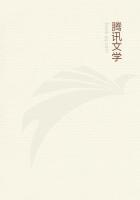(ll. 727-732) Do not stand upright facing the sun when you make water, but remember to do this when he has set towards his rising. And do not make water as you go, whether on the road or off the road, and do not uncover yourself: the nights belong to the blessed gods. A scrupulous man who has a wise heart sits down or goes to the wall of an enclosed court.
(ll. 733-736) Do not expose yourself befouled by the fireside in your house, but avoid this. Do not beget children when you are come back from ill-omened burial, but after a festival of the gods.
(ll. 737-741) Never cross the sweet-flowing water of ever-rolling rivers afoot until you have prayed, gazing into the soft flood, and washed your hands in the clear, lovely water. Whoever crosses a river with hands unwashed of wickedness, the gods are angry with him and bring trouble upon him afterwards.
(ll. 742-743) At a cheerful festival of the gods do not cut the withered from the quick upon that which has five branches (38)with bright steel.
(ll. 744-745) Never put the ladle upon the mixing-bowl at a wine party, for malignant ill-luck is attached to that.
(ll. 746-747) When you are building a house, do not leave it rough-hewn, or a cawing crow may settle on it and croak.
(ll. 748-749) Take nothing to eat or to wash with from uncharmed pots, for in them there is mischief.
(ll. 750-759) Do not let a boy of twelve years sit on things which may not be moved (39), for that is bad, and makes a man unmanly; nor yet a child of twelve months, for that has the same effect. A man should not clean his body with water in which a woman has washed, for there is bitter mischief in that also for a time. When you come upon a burning sacrifice, do not make a mock of mysteries, for Heaven is angry at this also. Never make water in the mouths of rivers which flow to the sea, nor yet in springs; but be careful to avoid this. And do not ease yourself in them: it is not well to do this.
(ll. 760-763) So do: and avoid the talk of men. For Talk is mischievous, light, and easily raised, but hard to bear and difficult to be rid of. Talk never wholly dies away when many people voice her: even Talk is in some ways divine.
(ll. 765-767) Mark the days which come from Zeus, duly telling your slaves of them, and that the thirtieth day of the month is best for one to look over the work and to deal out supplies.
(ll. 769-768) (40) For these are days which come from Zeus the all-wise, when men discern aright.
(ll. 770-779) To begin with, the first, the fourth, and the seventh -- on which Leto bare Apollo with the blade of gold --each is a holy day. The eighth and the ninth, two days at least of the waxing month (41), are specially good for the works of man. Also the eleventh and twelfth are both excellent, alike for shearing sheep and for reaping the kindly fruits; but the twelfth is much better than the eleventh, for on it the airy-swinging spider spins its web in full day, and then the Wise One (42), gathers her pile. On that day woman should set up her loom and get forward with her work.
(ll. 780-781) Avoid the thirteenth of the waxing month for beginning to sow: yet it is the best day for setting plants.
(ll. 782-789) The sixth of the mid-month is very unfavourable for plants, but is good for the birth of males, though unfavourable for a girl either to be born at all or to be married. Nor is the first sixth a fit day for a girl to be born, but a kindly for gelding kids and sheep and for fencing in a sheep-cote. It is favourable for the birth of a boy, but such will be fond of sharp speech, lies, and cunning words, and stealthy converse.
(ll. 790-791) On the eighth of the month geld the boar and loud-bellowing bull, but hard-working mules on the twelfth.
(ll. 792-799) On the great twentieth, in full day, a wise man should be born. Such an one is very sound-witted. The tenth is favourable for a male to be born; but, for a girl, the fourth day of the mid-month. On that day tame sheep and shambling, horned oxen, and the sharp-fanged dog and hardy mules to the touch of the hand. But take care to avoid troubles which eat out the heart on the fourth of the beginning and ending of the month; it is a day very fraught with fate.
(ll. 800-801) On the fourth of the month bring home your bride, but choose the omens which are best for this business.
(ll. 802-804) Avoid fifth days: they are unkindly and terrible.
On a fifth day, they say, the Erinyes assisted at the birth of Horcus (Oath) whom Eris (Strife) bare to trouble the forsworn.















